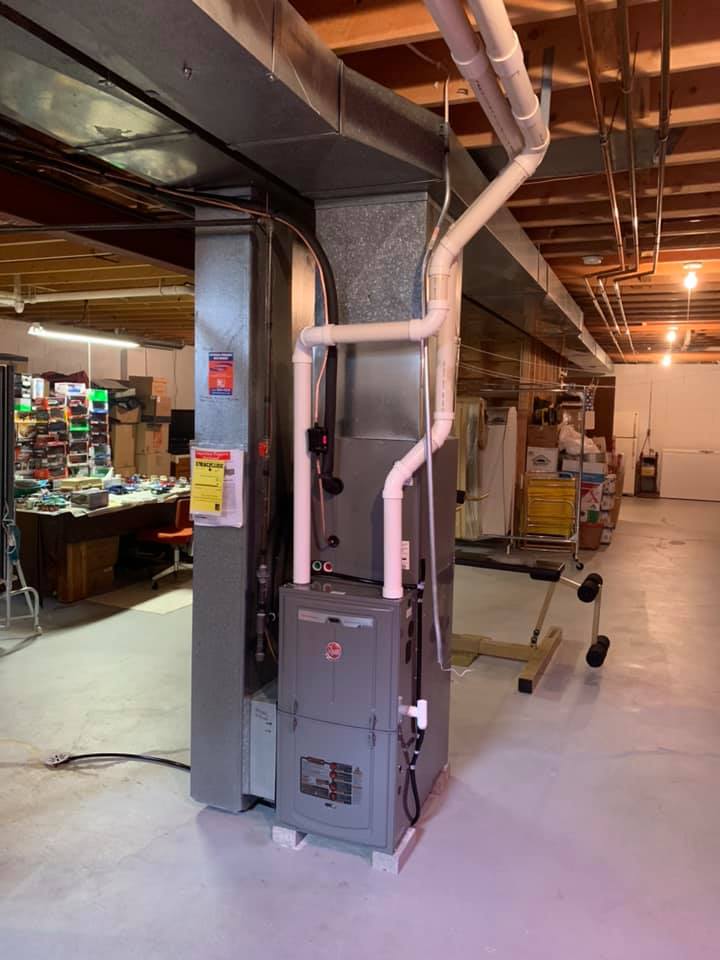The Ultimate Overview to Furnace Installment for a Cozy Home
Heater installment is a crucial element of preserving a comfortable home environment, especially throughout the chillier months. As you consider these aspects, the inquiry continues to be: what actions can you take to ensure your heating system serves you well for years to come?
Kinds Of Heaters

Gas furnaces are one of the most common option due to their effectiveness and lower operational expenses. They use all-natural gas or lp, giving fast heating and constant efficiency, making them excellent for cooler environments.
Electric heaters, while normally simpler to set up and preserve, often tend to have higher operational expenses. They are often favored in areas where gas service is unavailable or for homes with existing electrical facilities.
Oil furnaces, though much less common today, remain a practical alternative in certain regions. They shed home heating oil, which can be advantageous throughout chillier months, yet their dependence on oil distribution presents prospective obstacles.
In addition, there are high-efficiency models readily available throughout these types, which can significantly decrease energy intake and utility expenses - furnace installation. Eventually, understanding these heating system kinds will assist property owners pick a system that straightens with their home heating requires, budget plan, and power choices
Choosing the Right Size
Selecting the suitable dimension for a heating system is crucial to guaranteeing optimal efficiency and energy performance. An undersized heater will certainly struggle to maintain comfortable temperature levels throughout the cold months, causing raised wear and tear, higher energy costs, and prospective system failure. Conversely, an oversized heater may cycle on and off too often, causing inefficient home heating and unequal temperature level circulation within the home.
To determine the correct heating system size, an estimation known as the Manual J lots calculation should be done. This procedure assesses numerous factors, including the square footage of the home, insulation degrees, window dimensions, and regional environment problems. This thorough analysis makes sure that the furnace satisfies the particular home heating demands of the area.

Installment Refine Review
In terms of products, you will certainly need ductwork, insulation, and securing tape to make sure optimal air flow and power performance - furnace installation. It is additionally important to have a brand-new heater filter accessible, along with venting products, such as PVC pipeline or steel flue, depending on the sort of heater being mounted
Security equipment, consisting of gloves, goggles, and a face mask, is also essential to safeguard against dust and particles throughout installation. Having all these tools and materials easily offered not only improves the procedure yet also improves the safety and security and effectiveness of the heating system setup.
Maintenance Tips for Durability
To ensure the long life of your furnace, it is vital to execute a regular upkeep routine that attends to essential elements of the system. Begin by changing or cleansing the air filter each to three months, as a clogged filter can limit airflow and reduce efficiency. Additionally, check and clean up the blower assembly to stop dirt accumulation that can prevent efficiency.
Next, examine the thermostat settings and recalibrate if required to make sure precise temperature level regulation. Evaluate the ductwork for leakages or obstructions, as this can he said lead to power loss and irregular home heating. Frequently lube the motor and bearings according to the supplier's recommendations to minimize damage.
Specialist evaluations should take place yearly, where a qualified specialist can analyze the heating system's total condition, look for gas leaks, and make certain that security functions are functioning correctly. Finally, take into consideration mounting a programmable thermostat to enhance power usage and maintain consistent home temperature levels. By taking on these maintenance practices, you can enhance your heater's performance, prolong its life-span, and inevitably enjoy a comfortable and comfy home setting.
Final Thought
